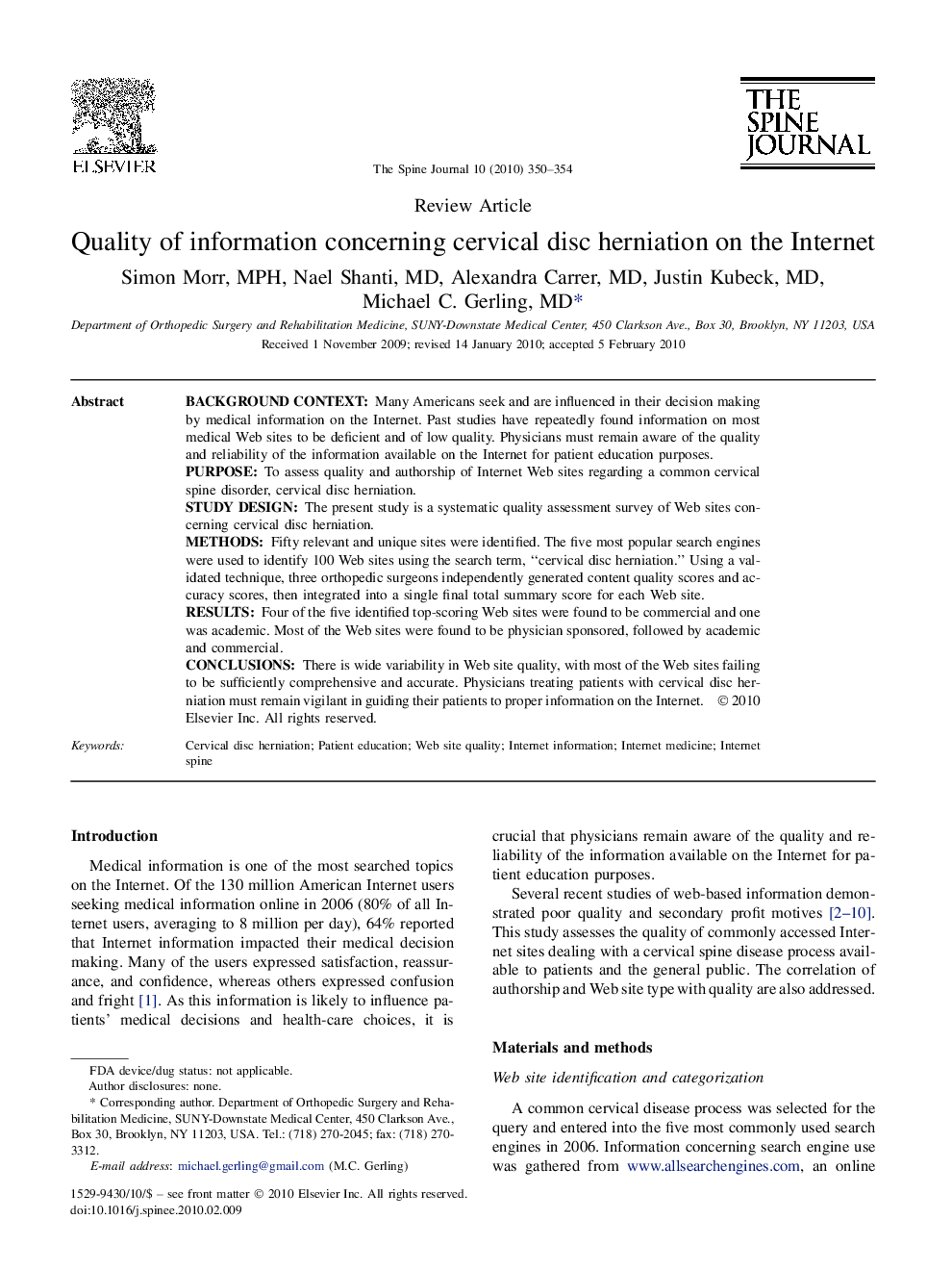| Article ID | Journal | Published Year | Pages | File Type |
|---|---|---|---|---|
| 4098583 | The Spine Journal | 2010 | 5 Pages |
Background ContextMany Americans seek and are influenced in their decision making by medical information on the Internet. Past studies have repeatedly found information on most medical Web sites to be deficient and of low quality. Physicians must remain aware of the quality and reliability of the information available on the Internet for patient education purposes.PurposeTo assess quality and authorship of Internet Web sites regarding a common cervical spine disorder, cervical disc herniation.Study DesignThe present study is a systematic quality assessment survey of Web sites concerning cervical disc herniation.MethodsFifty relevant and unique sites were identified. The five most popular search engines were used to identify 100 Web sites using the search term, “cervical disc herniation.” Using a validated technique, three orthopedic surgeons independently generated content quality scores and accuracy scores, then integrated into a single final total summary score for each Web site.ResultsFour of the five identified top-scoring Web sites were found to be commercial and one was academic. Most of the Web sites were found to be physician sponsored, followed by academic and commercial.ConclusionsThere is wide variability in Web site quality, with most of the Web sites failing to be sufficiently comprehensive and accurate. Physicians treating patients with cervical disc herniation must remain vigilant in guiding their patients to proper information on the Internet.
